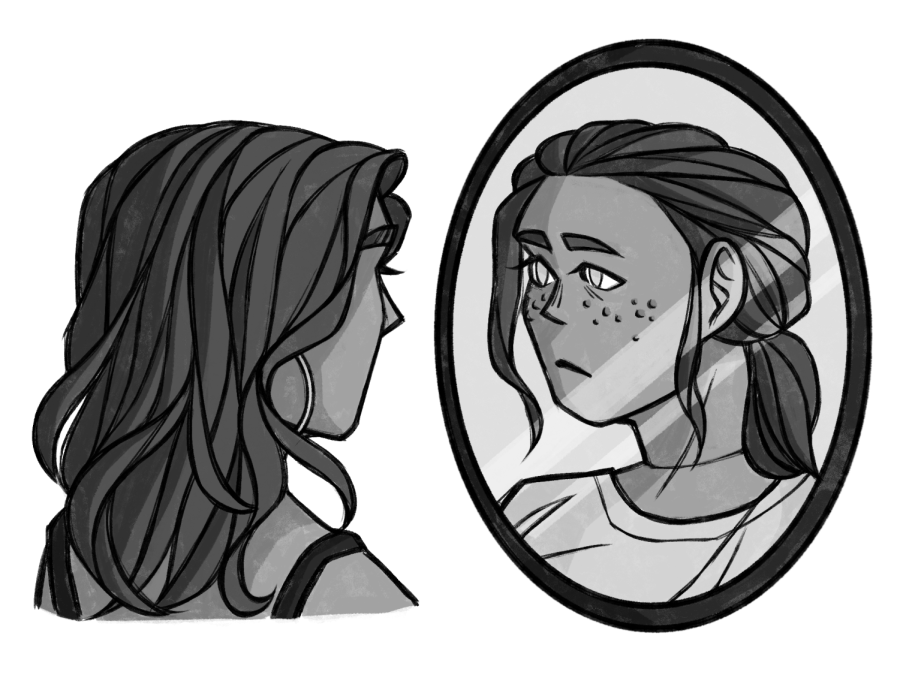A&E: Students explore glow up culture
A teenager opens TikTok. They scroll through the abundance of videos before landing on a post that catches their attention. A video shows two pictures of a person, one of them, a younger version of themselves, the other, a “glowed up” version that became conventionally attractive.
A trend sweeping social media sites, glow ups show people completely transforming their appearance, with a goal to become more attractive. Many teenagers subjected to this viral trend feel the pressure to glow up, including those at SCHS.
Junior Semra Hidic pointed out that glow ups are built on the foundation of stereotypes. She believes that glow-up culture leads people to reject features that are not conventionally seen as attractive and to conform to what society does view as attractive.
“I feel like the whole concept of a glow up is that people just stereotype it as all of these undesirable features,” Hidic said. “But then you glow up and maybe you had acne or maybe you can have what people thought of as a good style, or something like that.”
Sophomore Malia Lai noted that glow ups should not have to be limited to physical parts of one’s appearance. She pointed out that people can also mentally and emotionally glow up and seek to improve themselves. In this case, she believes that glow ups are positive and can promote better mental health.
“I think usually it (glowing up) is just physical features, like bettering yourself. But also the emotional aspect of it, like if you have not very healthy thinking patterns, then change those and do what is best for yourself,” Lai said.
Senior Leopoldo De Jesus Hernandez Gonzalez believes the way glow ups are depicted online are unrealistic and can lead to insecurities.
“I feel they are a negative thing because it holds everyone to glow up and to these unrealistic expectations that are not real,” Gonzalez said.
Lai agrees that glow ups are not a realistic expectation for everyone. She pointed out that they are often expensive and that spending large amounts of money on beauty products or procedures is not a viable option for most.
“Going back to glow up videos, a lot of them show like, ‘Getting this for $150’ or ‘Getting my hair done. Buying a new wardrobe,’ and for a lot of people, that is not sustainable and not really possible,” Lai said.
While glow ups can sometimes lead people to feel more confident about themselves, many SCHS students believe they promote unrealistic expectations and can increase insecurities.
“It can make you feel better about yourself, but I think when you look at the root of it, the way it’s done is like, ‘Oh these features are not good, or these qualities are not good and these are,’ I feel it is a bit problematic,” Hidic said. “It’s already so infiltrated into society that some people do feel better because they feel like they have had their glow up, but it’s just unrealistic.”


